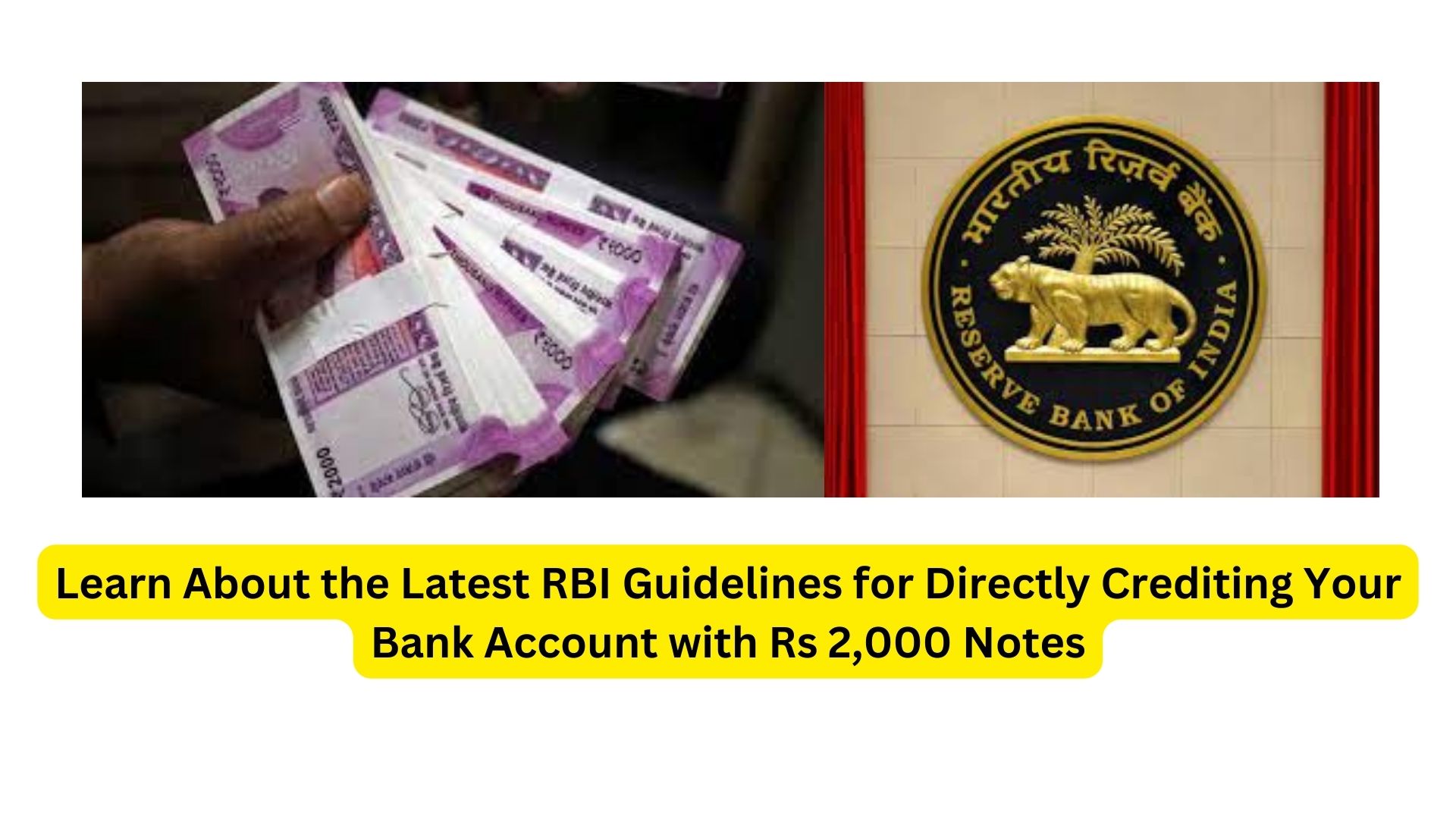
The Reserve Bank of India (RBI) has implemented a convenient option for individuals to exchange or deposit their Rs 2,000 currency notes. Citizens can now send their Rs 2,000 banknotes to specified regional RBI offices through insured post for direct credit to their bank accounts. This initiative is aimed at making the process hassle-free for those who are located far away from RBI regional offices.
In addition to the insured post option, the RBI is offering a Triple Lock Receptacle (TLR) form for individuals to deposit their Rs 2,000 banknotes into their bank accounts.
Rohit P Das, the Regional Director of RBI, encourages customers to utilize the insured post service, as it ensures a seamless and secure method for direct credit to their accounts, thus saving them the inconvenience of visiting specific branches and waiting in queues.
He reassured depositors that both the TLR and insured post options are highly secure and there is no need to be concerned about their safety. He also mentioned that the Delhi office alone has received about 700 TLR forms. The RBI has been consistently communicating these two options to the public, in addition to the exchange facility available at its offices.
On May 19, the RBI announced the withdrawal of Rs 2,000 denomination banknotes from circulation. As of May 19, 2023, more than 97 percent of the Rs 2,000 banknotes in circulation have been returned.
To facilitate the exchange process, Shaktikanta Das, the Governor of RBI, shared details of special arrangements made at the regional office in Delhi. These arrangements include separate queues for senior citizens and ‘divyangjan,’ as well as a separate queue for individuals with a small number of Rs 2,000 banknotes (e.g., 2-3) to expedite the process. Furthermore, the RBI has provided a drinking water facility and a covered waiting area to ensure the comfort of the public. Governor Das reiterated that Rs 2,000 notes remain legal tender.
Governor Das also expressed his appreciation for the support provided by the Delhi Police in managing crowds and maintaining order in the vicinity of the RBI regional office.
Initially, the RBI had set a deadline for the public and entities to either exchange or deposit their Rs 2,000 banknotes by September 30, which was later extended to October 7. However, both deposit and exchange services at bank branches were discontinued on October 7. Starting from October 8, individuals have the option to either exchange the currency or have the equivalent amount credited to their bank accounts at 19 RBI offices located in cities such as Ahmedabad, Bangalore, Belapur, Bhopal, Bhubaneswar, Chandigarh, Chennai, Guwahati, Hyderabad, Jaipur, Jammu, Kanpur, Kolkata, Lucknow, Mumbai, Nagpur, New Delhi, Patna, and Thiruvananthapuram.
The Rs 2,000 banknotes were introduced in November 2016 following the demonetization of the then-existing Rs 1,000 and Rs 500 banknotes.
